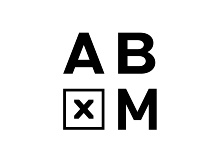DigitalFutures 2022 Workshop
In this workshop, participants will learn about the theoretical concepts of agent-based modelling and simulation (ABMS) and how to apply those to materialization-informed architectural design. The particular relevance of ABMS to architecture lies in its ability to integrate many – potentially conflicting – design criteria, such as structural or fabrication-related constraints. This can be achieved by endowing the constituent units of the architectural system under investigation with decision-making agency. These units (i.e., agents) exhibit distinct behaviors that encapsulate low-level design intentions, based on which agents interact with one another and their environment. In doing so, they negotiate and iteratively integrate their associated design intentions on the unit-level, eventually leading to highly differentiated and informed architectural conditions on the building-level.
In the first half of the workshop, participants will be familiarized with the conceptual and methodological implications of translating architectural systems to agent systems, as well as design intentions to agent behaviors. This will involve both expert lectures and hands-on tutorials using Rhino/Grasshopper. Participants will also be introduced to ICD’s interactive agent-based modeling framework, by means of which they will have the opportunity to augment and extend an architectural agent model provided by the instructors.
The workshop will conclude with a diverse set of agent behaviors and thus architectural variations of the provided case study, showcasing the potentials that arise from bottom-up, behavior-based design processes. Selected outcomes will be tested through the construction of a full-scale demonstrator at Tongji University. After participation students will have a comprehensive understanding of ABMS and its application to architectural design.
ABxM Framework
The workshop also concides with the public release of the ABxM Framework, an open platform for experimentation with agent-based, aka individual-based, systems. The aim of the framework is to "standardize" research equipment, in this case the tools for modelling and simulation, in order to increase transparency of agent-based models, and repeatability of research results.
Its main application can be seen in the modelling and simulation of dynamic systems that can be conceived of as consisting of locally interacting, discrete entities that have autonomy and goal-orientation. These models and simulations can be explorative (divergent) or goal-oriented (convergent) as, for example, when used for optimization.
The framework is composed of a set of class libraries organized around the core agent library ABxM.Core. The main usage scenario for domain-specific applications is to expand the functionality of the framework by building an add-on while using the core as the common infrastructure.
Further information about the framework and a download link can be found here.
Institute for Computational Design and Construction (ICD), University of Stuttgart
Fabian Kannenberg, Mathias Maierhofer, Tobias Schwinn, Luis Orozco, David Stieler, Max Zorn, Prof. Achim Menges
College of Architecture and Urban Planning (CAUP), Tongji University, Shanghai
Hua Chai, Prof. Philip F. Yuan
Hua Chai, Prof. Philip F. Yuan
Participants
Paula Castel, Jeremy Chen, Israa El-Maghraby, Daria Kovaleva, Dan Liang, Fuyuan Liu, Wanxin Liu, Yifeng Liu, Yunguang Liu, Asli Oney, Wiktor Pawlak, Rafael Ramos M. Rincón, Felix Rasehorn, Xingjie Xie, Zhiying Ye, Yixuan Zeng
Paula Castel, Jeremy Chen, Israa El-Maghraby, Daria Kovaleva, Dan Liang, Fuyuan Liu, Wanxin Liu, Yifeng Liu, Yunguang Liu, Asli Oney, Wiktor Pawlak, Rafael Ramos M. Rincón, Felix Rasehorn, Xingjie Xie, Zhiying Ye, Yixuan Zeng
Technical Support
Shanghai Fab-Union Technology Co., Ltd
Li Han, Gang Liu, Jinlu Yu, Yifan Zhou
Shanghai Fab-Union Technology Co., Ltd
Li Han, Gang Liu, Jinlu Yu, Yifan Zhou
Organized and Supported by
DigitalFuturesWORLD
DigitalFuturesWORLD


